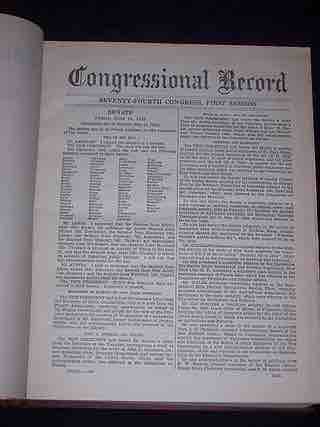Debate is contention in argument, dispute, controversy, and discussion. It is a method of interactive and representational argument. Debate is a broader form of argument than deductive reasoning, which only examines whether a conclusion is a consequence of premises, and factual argument, which only examines what is or isn't the case, or rhetoric, which is a technique of persuasion. Debates are often organized for purely competitive purposes.
The use of debate in Congress often occurs when a new bill is introduced, especially if that bill is controversial. Senators may debate a bill. In the Senate, Senators sometimes use this rule to filibuster a bill—that is, continue debating a bill endlessly so that it cannot be voted on. The only way to end a filibuster is for three-fifths of all Senators to vote for a cloture resolution, which ends all debate and brings the bill up for voting. Use of the filibuster tends to be controversial. Whichever party is in the majority tends to call its use "obstructionism," while the other side sees it as an important check on the majority.
Because of its size, the House relies heavily upon fixed rules and strict timetables for debate. When bills are debated on the floor of the House, each party's leader is allocated a fixed amount of time to present their argument for or against the bill, and they can delegate this time to members of their party as they see fit. During House debates, it is common for representatives to "yield their time" to one another. Times for debate and other procedures are set by the House Rules Committee, which is generally considered to be one of the most powerful committees in Congress.

Congressional Records
The Congressional Records contain sections of verbatum congressional debates.